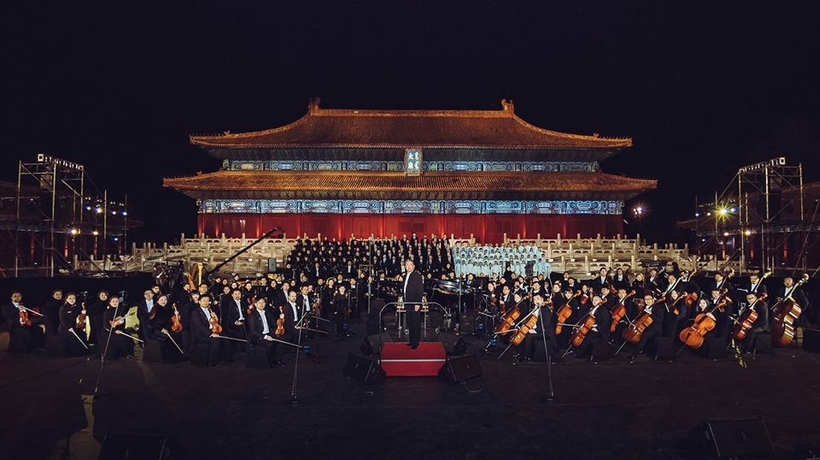The Shanghai Symphony Orchestra has blossomed much like its home city, which has evolved from a key port during the Opium Wars to dazzling colonial outpost, to besieged wartime center, to a megalopolis of 24 million. When the orchestra’s 140th anniversary opens this weekend, it won’t be a Geritol-fueled tux-and-gown-fest. More than half the Chinese classical music audience is thought to be under 40, which is a reflection of Shanghai itself, a place where the future seems to have already found its footing—yet another magnet for the disposable income drenching China these days.
The season will open with a world premiere by the Chinese-American composer Zhou Tian—commissioned by the symphony and conducted by Long Yu, the music director—and continues on September 29 with Sir Simon Rattle leading the London Symphony Orchestra.
Established in 1879 (as the Shanghai Municipal Public Band; it has had a few names along the way), the orchestra has ridden the wave of massive cultural upheaval in China yet almost never ceased performing. Founded mostly for the Europeans who inhabited the city’s tree-lined concessions (its current home, the slick symphony hall, is in the hip, leafy former French Concession), the orchestra has survived colonialism, the Japanese invasion in World War II, the arts-crushing rise of Communism, and the even harsher artistic censorship of the Cultural Revolution in the 1960s, when most non-patriotic music was banned.
During the subsequent 10 years, the orchestra played the music it was commanded to play, and the reaction was dramatic: members of the orchestra were said to have committed suicide, including Gu Shengying, a famous pianist.
Survival Arts
But in the four decades since the Mao era ended, the oldest symphony in Asia has emerged as perhaps its most high-profile—and with a recording contract with Deutsche Grammophon. It just completed a tour of Europe, including the Lucerne Festival and the BBC Proms in London (where it performed a sing-along encore of “Hey Jude” on the heels of Rachmaninoff and Mozart), and the United States (Washington, D.C., and Ravinia) to great acclaim. It sells out many performances—including the two opening ones this weekend, as well as the October 5 concert with the soprano Edita Gruberová—and not just the celebrity-driven ones that have become triage for many Western symphonies.
And its president is a woman: Fedina Zhou, who joined the orchestra at 26 (and became its leader in 2014). She is credited with making the Shanghai Symphony Orchestra a global force as it tours the world and stages elaborate spring and summer music festivals that lure young audiences—and older ones who remember the dark, music-less days of the Cultural Revolution.
As China plans to mark 70 years of Communist rule on October 1, just a few days after opening night, perhaps the country’s most impressive example of Western-arts survival—and twice the age of Communism in China—will have already upstaged the festivities. —David Belcher
David Belcher is a writer and editor based in Hong Kong

